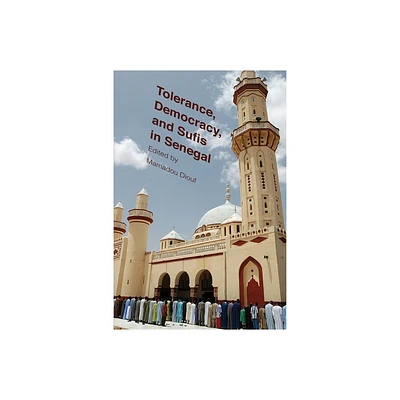Home
Faithful to Secularism: the Religious Politics of Democracy Ireland, Senegal, and Philippines
Loading Inventory...
Barnes and Noble
Faithful to Secularism: the Religious Politics of Democracy Ireland, Senegal, and Philippines
Current price: $65.00


Barnes and Noble
Faithful to Secularism: the Religious Politics of Democracy Ireland, Senegal, and Philippines
Current price: $65.00
Loading Inventory...
Size: Hardcover
*Product Information may vary - to confirm product availability, pricing, and additional information please contact Barnes and Noble
Religion and democracy can make tense bedfellows. Secular elites may view religious movements as conflict-prone and incapable of compromise, while religious actors may fear that anticlericalism will drive religion from public life. Yet such tensions are not inevitable: from Asia to Latin America, religious actors coexist with, and even help to preserve, democracy.
In
Faithful to Secularism
, David T. Buckley argues that political institutions that encourage an active role for public religion are a key part in explaining this variation. He develops the concept of "benevolent secularism" to describe institutions that combine a basic division of religion and state with extensive room for participation of religious actors in public life. He traces the impact of benevolent secularism on religious and secular elites, both at critical junctures in state formation and as politics evolves over time. Buckley shows how religious and secular actors build credibility and shared norms over time, and explains how such coalitions can endure challenges from both religious revivals and periods of anticlericalism.
tests this institutional theory in Ireland, Senegal, and the Philippines, using a blend of archival, interview, and public opinion data. These case studies illustrate how even countries with an active religious majority can become and remain faithful to secularism.
In
Faithful to Secularism
, David T. Buckley argues that political institutions that encourage an active role for public religion are a key part in explaining this variation. He develops the concept of "benevolent secularism" to describe institutions that combine a basic division of religion and state with extensive room for participation of religious actors in public life. He traces the impact of benevolent secularism on religious and secular elites, both at critical junctures in state formation and as politics evolves over time. Buckley shows how religious and secular actors build credibility and shared norms over time, and explains how such coalitions can endure challenges from both religious revivals and periods of anticlericalism.
tests this institutional theory in Ireland, Senegal, and the Philippines, using a blend of archival, interview, and public opinion data. These case studies illustrate how even countries with an active religious majority can become and remain faithful to secularism.


















